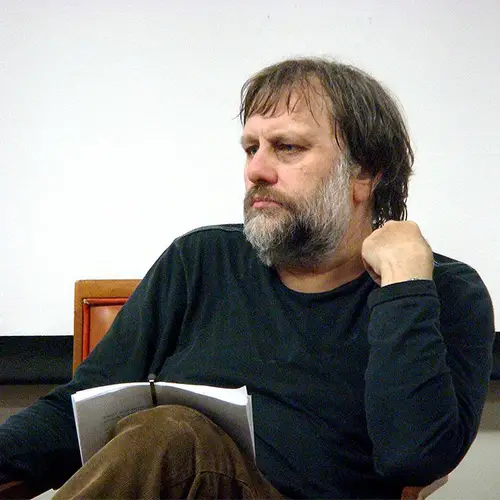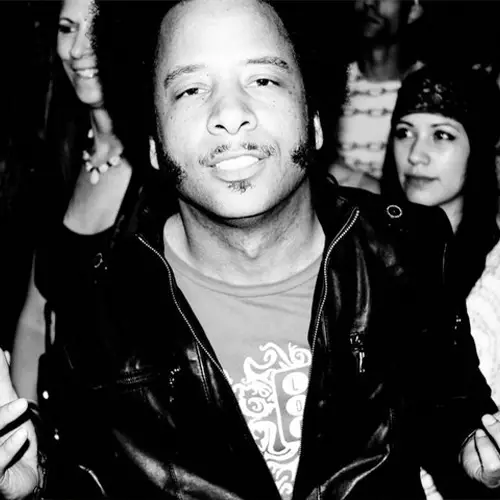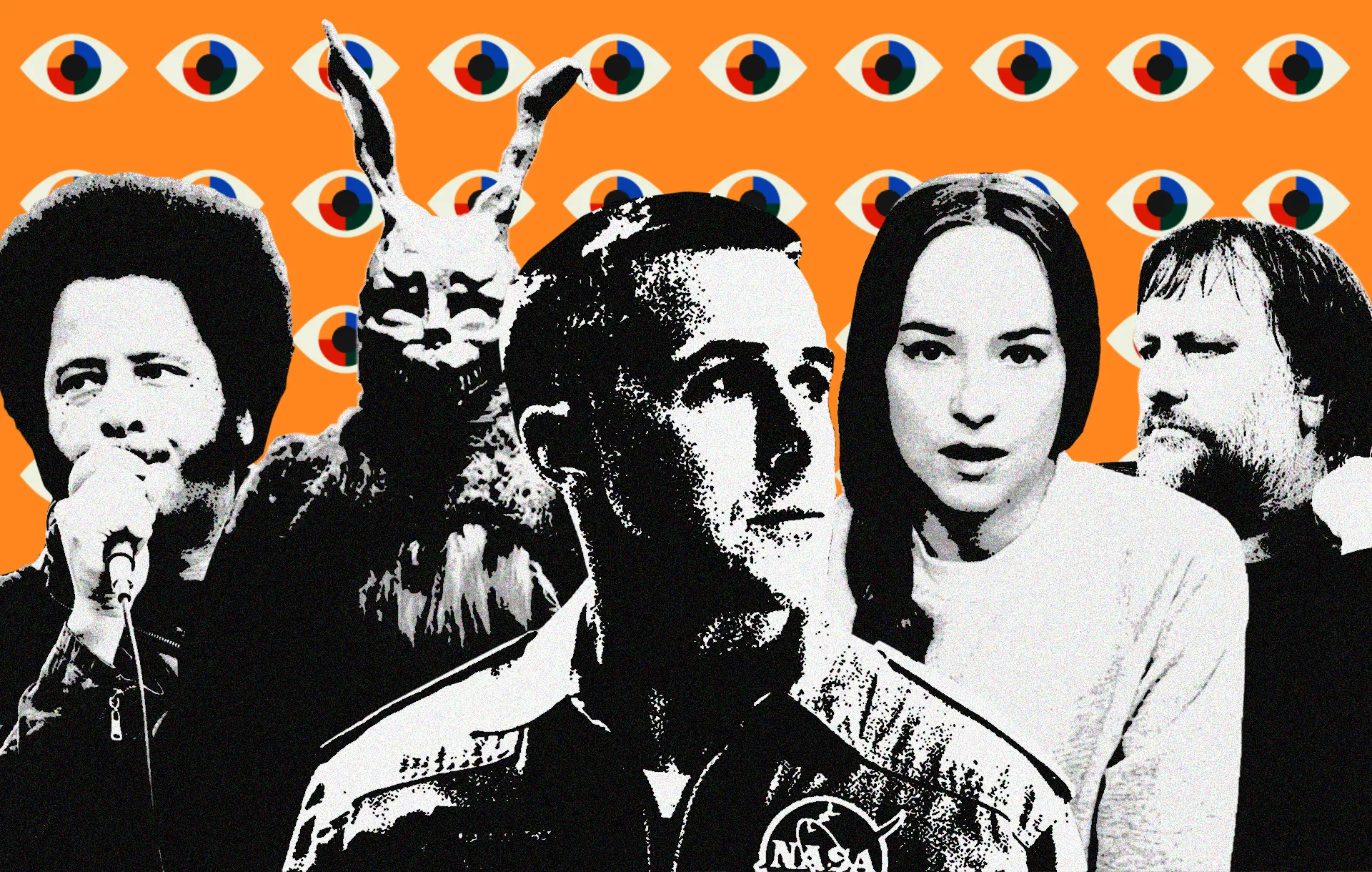The concise answer is a resounding yes. If this were a novel, the overarching thesis would be that all art is inherently political. Whether or not any form of political expression or statement present in a given work is intentional or unintentional – conscious or subconscious – in the mind of the creator is irrelevant. In critical theory (not only film, but in respect to all art forms), one analyzes every aspect of art and culture as a “text” they can read into in a way by which however they may want to gain personal and philosophical insights.

Beyond that, however, is the concept of ideology, pioneered by philosopher Slavoj Žižek – not what our stated beliefs are, but the assumptions, societal rules and behaviors, and political and economic structures that we take for granted as natural, rather than an imposed worldview. This allows one to detach themselves from any given work with which they analyze. It also provides the notion that even creators, artists – filmmakers – can make art without knowing its political significance, or, even worse, willfully ignore the structures in place that blatantly bleed into said art; a paradoxical, self-refuting creation. Thus, whether or not political expression is intentional in a filmmaker’s work has nothing to do with whether or not it is present in said work.
Ideology 101
Marxist ideologies are discourses modeled to promote false ideas, or “false consciousness,” in subjects about the political regimes in which they live. Without these false consciousnesses, these ideologies, Karl Marx believed society would collapse. Ideology is key to our existential existence under our present structures of power in place.
A common and easily digestible example is that of religion in the feudalistic society of Middle Ages between the 9th and 15th centuries. The ruling class, nobility such as a lord or fief, used the ideology of religion in order to reinforce the foundation, or structure, of society, keeping the serfs in their “chosen” class. Unlike the civil rights marches in the 1960s, the 1992 LA Riots, and the worldwide protests against police brutality towards black people today, serfs never thought to question the structure in place, because god was an even more influential concept during that time period (the Christian Crusades, during which three million people died over an entity that may or may not exist, occurred concurrently from the 11th to the 13th centuries). Alas, history is doomed to repeated itself. When a new ideology is introduced, society crumbles, and a new one replaces it. We live in a continual real-time, never-ending, trial-and-error chain of continuously evolving ideologies of the ruling class – humankind’s attempt to contextualize our world.
In paradoxical fashion, even if we think we aren’t influenced by the ideology of the society of a given time period, we most certainly are
Italian philosopher Antonio Gramsci re-popularized and repurposed a term for this paradigm shift that occurs throughout history – that of one ideology replacing the other: Interregnum. In his work, Gramsci also refers to the dominant, unconscious ideology of a given society in a given era as a “cultural hegemony.” Currently, the United States, which represents capitalism through every mode of our lives, is the main world ideology; even though smaller societies leaning Left are able to still technically “coexist,” capitalism is widely regarded as the correct default of our worldview. Žižek‘s ideology is an extension of philosopher Louis Althusser and psychoanalyst Jacques Lacan‘s ideas of false consciousness. Dino Franco Felluga, an author and English professor at Purdue University, worded Žižek‘s ideology as concise as anyone can:
“Ideology does not ‘reflect’ the real world but ‘represents’ the ‘imaginary relationship of individuals’ to the real world; the thing ideology (mis)represents is itself already at one remove [sic] from the real…In other words, we are always within ideology because of our reliance on language to establish our ‘reality;’ different ideologies are but different representations of our social and imaginary ‘reality.’“
We create a language barrier to contextualize a society that simultaneously shapes us. In paradoxical fashion, even if we think we aren’t influenced by the ideology of the society of a given time period, we most certainly are, according to Žižek. Žižek best explains the concept of the lens in his noteworthy The Pervert’s Guide to Ideology, in which he uses John Carpenter’s They Live as an example of how ideology hides the world as it truly is from us. They Live follows a man who discovers that aliens influence the world and human behavior through subliminal messaging. When he happens upon a set of glasses that can see through the facade that the aliens create, he sees the world as it is. So Žižek argues that the human race inherently wears glasses that inhibit their worldview ensuring the ideology of the era is supported. We must try to strip ourselves of the glasses, the lens, even though the vast majority are reluctant to question our reality. It’s human nature to want to keep this barrier between us and the world as it truly is and functions beyond human limitations – beyond ideology.
As aforementioned, political systems evolve until a new ideology is introduced, when interregnum occurs, upon when they collapse, paving way for a new society. A new ideology. A new cultural hegemony. Marx believed this. Žižek does. The latter argues that our predominant political system – capitalism – is such an influential ideology, the structures so deeply rooted in our proverbial Earth, that our society doesn’t believe there’s an alternative to capitalism, this making the concept of the lens, and the world as it functions outside of the current structures in place created and run by the elite few in a society riddled with comically disproportionate wealth distribution, virtually impossible to fathom.
Boots Riley’s Argument
Although musician, filmmaker, and activist Boots Riley would agree with Žižek on the inherent politicization of art, he would likely balk at the idea of ideology creating a disconnect between the real world as it truly functions and the world as we see it through our false consciousness glasses – for him at least – Riley has the proverbial glasses off, marrying emotion with politics. In an interview with SF Weekly, Riley states, “Everything is political, and I think the reason we feel certain things has to do with the world we live in, which is connected to something political.”

Riley has continually spoken on the topic of the structures in place held by the cultural hegemony of capitalism, which are currently crumbling to make room for long-gestating new potential Left ideologies; however, they are so established, so ingrained in our society, that film either largely consciously or subconsciously ignores the impending interregnum. They are ideologies within ideologies.
In an interview with The Stanford Daily, Riley explains, “There’s a viewpoint that comes across in [art], and that’s political. We just don’t see it as political when it doesn’t go against the status quo. Often, there’s art and you only see the aesthetic of it because it’s saying what you hear everyday anyway. So you’re never going to think about what it’s saying. That is very political. So I would say that the dichotomy is not between ‘good art’ and ‘political art.’ The dichotomy is a different line between art that goes against the status quo and art that doesn’t.”
Riley describes the societal groupthink, the vast majority reluctant to remove the special glasses imposed upon them by the cultural hegemony in Žižek’s famous They Live example – capitalism has come into its own as much as it is simultaneously crumbling. Documentary filmmaker, author, and photographer Lauren Greenfield explains this shift from traditional towards toxic capitalism as a distinct change in thought between generations. The Traditional/Silent and Baby Boomer generations pursued the ideology of capitalism with integrity and the false notion of the American Dream – to provide for their nuclear families – however, Generation X onwards, beginning in the Reagan era, began seeing money as a reflection of one’s character; rich is good; poor is bad. Capitalism has been perverted beyond repair. And many films of the 21st century increasingly explore this concept.
The dichotomy is a different line between art that goes against the status quo and art that doesn’t
Like Riley and Greenfield, more creators are removing their proverbial glasses, even despite our current ideology’s seemingly permanent occupation in our hierarchy of needs. Former New York Times journalist Chris Hedges argues, “Societies accrue their greatest wealth at the moment that they face death.” If Greenfield’s career work is indicative of crumbling ideology, then “Girl Culture,” Thin, Generation Wealth, Queen of Versailles, Fast Forward, and Kids + Money show how a cultural movement (the aforementioned perversion of wealth) destroyed a society’s values and sense of autonomy. Conversely, her latest feature, The Kingmaker, about former First Lady of the Philippines Imelda Marcos, depicts how a political dynasty destroyed the left momentum in the Philippines, paving the way for Rodrigo Duterte, doubling down on a defunct and archaic ideology to crush its dissent and any newer ideologies that challenge the current structures in place and challenge the cultural hegemony.
Conscious Examples
There are numerous conscious examples of filmmakers attempting to consciously engage with ideology beyond Riley and Greenfield, at various stages of the dissolve of their disconnect between the language they use to define society and the reality of the world; some filmmakers are more removed from their proverbial glasses than others, and it overtly shows.
Suspiria (2018)
While Dario Argento’s Suspiria follows Susie Bannion (Jessica Harper) through an increasingly bizarre dance academy, filtered through the perspectives of naive young women, Luca Guadagnino’s Suspiria analyzes the implications of the occult through more sexually mature, self-confident students – both set against the backdrop of the fall of 1977, however, the 2018 remake decidedly delves into the setting’s German Autumn. In Suspiria, dance represents sex in its most primal, bestial form. For example, when Madame Blanc (Tilda Swinton) asks Susie Bannion (Dakota Johnson) what it feels like when she first “gives herself to the dance,” Susie replies, “Like fucking…an animal.” The religiously-oppressed Susie discovers her libido through the ritual of dance.
Consider Susie representative of the RAF, whose ideals embraced anti-authoritarianism and women’s liberation, among others, and the Three Mothers, spellbindingly controlling every animalistic movement of their students’ dance, the authoritarian representative spawn that the RAF opposes. Not only is this an allegory for fascistic sexual oppression, but it also serves as an internalized dynamic within the academy that parallels that of German Autumn’s. Madame Blanc’s dance troupe’s penultimate “Volk” performance symbolizes the simultaneous beauty and pain of a woman losing her virginity, from Patricia’s (Chloë Grace Moretz), to Olga’s (Elena Fokina), to Sara’s (Mia Goth) suffering and ultimate symbolic sacrifice, to the visceral power of the movement in unison sans man, marks a rejection of said sexual oppression of a fascistic past, and is an opportunity for the pupil to reclaim their womanhood from both Blanch and the patriarchy.
Donnie Darko
Richard Kelly‘s Donnie Darko remains a masterclass in subliminal art. The recurring digits (28, 6, 42, 12) and their sum (88), Frank (James Duval) and Donnie’s (Jake Gyllenhaal) comparison to Wisdom from the Bible (Book of Wisdom 8:8 explains: “And if a man desire much knowledge: she knoweth things past, and judgeth of things to come: she knoweth the subtleties of speeches, and the solutions of arguments: she knoweth signs and wonders before they be done, and the events of times and ages.”), and Christ, respectively, Frank’s prophecy, and the film’s simultaneous self-awareness and deconstruction of other 1980s films’ (The Evil Dead, The Last Temptation of Christ) lenses, are the collective product of a filmmaker making sense of the world as he sees it without his societal glasses on, infusing a divine intervention dystopian ingredient into the film from his suburban Catholic upbringing.
Donnie Darko takes place in a suburban upper-middle-class town in the white liberal suburbs of America, set against the political backdrop of the Michael Dukakis and George H.W. Bush presidential race of 1988. Like Her, although politics take a back seat to the film’s more religious, cultural, and societal motifs and themes, this instant introduction to the ideology of the ’88 presidential race sets the tone for its critique of conservatives from the liberals from a more Left perspective. These nods range from references to the corrupt, destructive hypocrisy of the private Catholic school system and the Catholic Church, to highlighting the resurgence of isolationism (as technological innovation and economic output increased, also reflecting Marx’s theory regarding technology and Isolation discussed in Her) during Ronald Reagan’s suburban revival, to criticizing the pervasiveness of institutional sexism and racism, to conveying the collective societal unease of a post-Cold War era hysteria perpetuated by the United States’ fragile cultural hegemony.
Unconscious Examples
On the contrast, there are filmmakers who are just as content as intentionally “political” filmmakers in functioning within the imposed political structures, not necessarily consciously challenging the current ideology, but effectively as political in that they are creating films within a collective false consciousness that reflects ideology, but doesn’t question it.
Drinking Buddies
After the American independent movement of the 1990s, mumblecore emerged. Earlier mumblecore films, much like Italian Neorealism films, included non-professional actors in real settings, a method meant to capture this sense of “unadulterated authenticity.” Again, whereas Neorealism was sociopolitically charged, mumblecore focuses more on relationships and living under the structures in place – of which we take for granted as “immovable” – over plot, providing an intimate window into its characters’ personal lives. Mumblecore didn’t have a World War II, and, as such, its themes mostly reflect suburban mundanity and malaise.
Although recent iterations of mumblecore such as Joe Swanberg’s Win It All show that mumblecore is becoming more narratively cohesive and mature in content, the genre still remains a vanilla pastiche of Italian Neorealism, with virtually all of its creators crafting these genre films without the slightest discontent or questioning of our current ideology, but rather, an unwitting surrendering to it. Swanberg‘s Drinking Buddies is a mumblecore film simply about work and relationships. And nothing else. No plot. Two of the languages/structures/barriers we build between ideology and reality – part of our false consciousness. And it’s a good film. However, that doesn’t take away from the fact that it’s the exemplary product of complacency within the current ideology – why would one make a film about such a rigid subject matter without anything deeper to say about its lived in world? Ultimately, it’s a waste of creative resources.
First Man
Stripped of its artistic flourishes and narrative tangents, First Man is about a return to the “age of exploration and innovation for the sake of mankind,” a sentiment of which was an illusion, as it was, driven by two conflicting ideologies at opposite ends of the world, a space race with the Soviets. The film is incredibly nostalgic and unnecessarily slow in its depiction of simple rural life, used as a tool to contrast the incredibly exciting work life of a NASA astronaut. First Man is a beautiful film, however, director Damien Chazelle has the special glasses firmly planted on his face; even if he’s attempting to depict the space race from a different, more intimate, biographical perspective, it’s still vastly influenced by the oppressive ideology of then and now. Everything we do, we do for our country, because without our country, we would be nothing. This leaves out any room for, say, space exploration for the sake of scientific discovery, as opposed to being as a tool for maintaining cultural hegemony.
The Current Interregnum
Whether or not a full political revolution will occur over the course of the next decade or two remains to be seen, but, with all of the exponential technological innovation from Silicon Valley to Singapore happening largely over the course of the past three decades, one thing is certain right now: Capitalism, our current prevailing ideology, the cultural hegemony, is at the tail end of its life-expectancy. We are entering an unprecedented interregnum, wherein half of the world population don’t even realize and/or refuse to accept that it is happening, let alone possible. Regardless, capitalism has killed over two hundred million people in cold blood in its short lifespan. We’ve profoundly overestimated the “benevolent” nature of humankind. As such, our next ideology has to be conceived of carefully. And eventually, a new ideology will shape new structures as the old ones dissolve, paving the way for entirely new types of stories transposed onscreen to reflect the new collective false consciousness.




